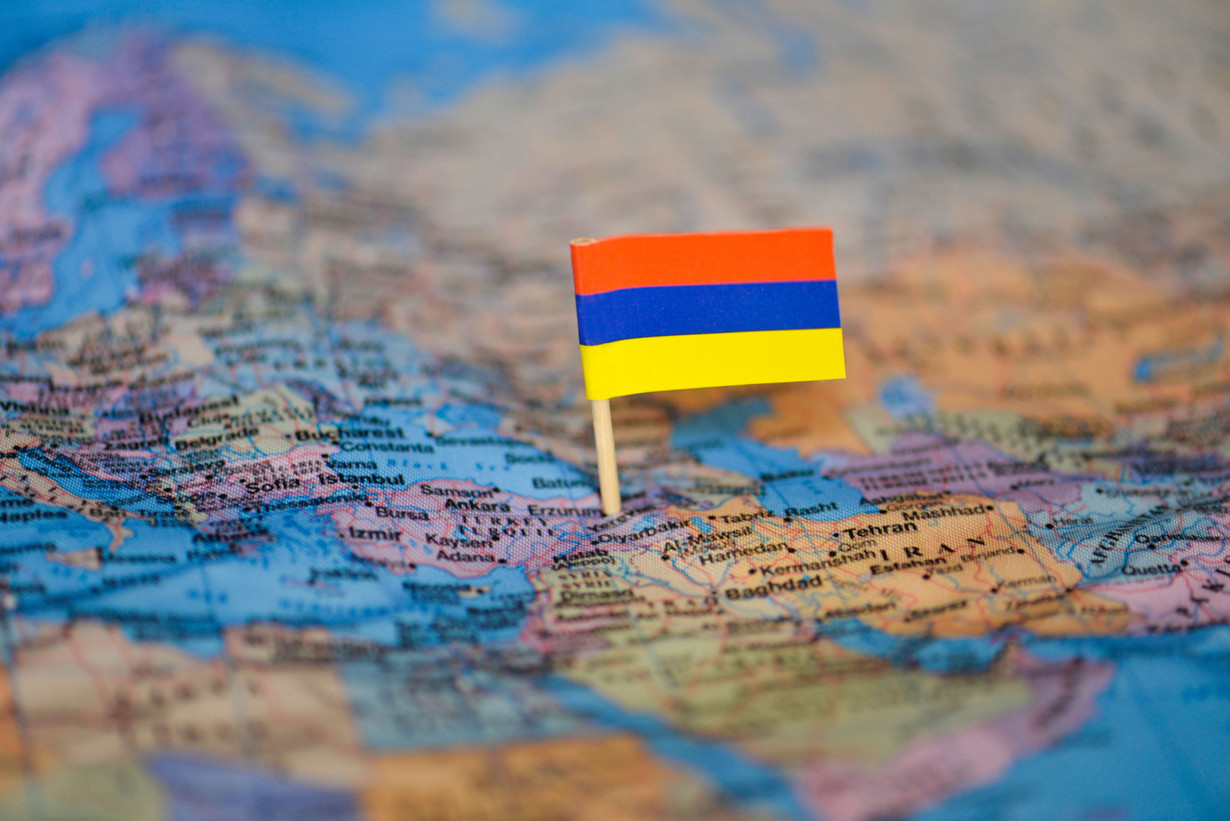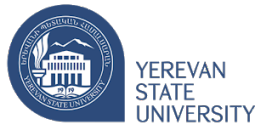You are invited to register for the in-person workshops on the first day of the ERC 2022, Monday 22 August 2022 starting at 8:00. You can register near the EERA Desk where there will be some sign-up lists to which you can add your name. Please note that these workshops are offered on a limited capacity, first-come, first-serve basis. You do not need to register for the online workshop.
Monday, 22 August
EERA networks organise workshops introducing questions within their research fields. This year, Network 31. Led - Network on Language and Education and NW 33. Gender and Education, will offer the following workshops.
- The workshops will take place Monday, 22 August, 15:30 - 17:00, in-person in Yerevan.
Network 31 Led - Network on Language and Education: Multiliteracies and Language Assessment in Linguistically Diverse Contexts
Multiliteracies and Language Assessment in Linguistically Diverse Contexts
Organised and presented by:
- Dr. Agnes Bodis (Macquarie University, Australia)
- Dr. Wenjuan Qin (Fudan University, China)
Irina Usanova (University of Hamburg, Germany)
The workshop will engage emerging researchers into the discussion on the issues of language assessment in linguistically diverse contexts. It aims to focus on both relevant dimensions of language assessment: the dimension of instruments’ development and the dimension of data analysis. The purpose is, therefore, to introduce and critically discuss the challenges of developing new instruments for simultaneous assessment of multiple languages, the reliability of newly developed instruments, and the comparability of tests across different languages. It will also address the relevant aspects of integrating language assessment into the research design.
The growing linguistic diversity in most European regions is reflected in the heterogeneity of students’ language repertoires and language proficiencies (Gogolin & Duarte, 2017). The individual repertoires may embrace a bright spectrum of languages, including but not limited to the majority language, heritage language, and foreign languages learned at school. Language proficiency in the languages from a person’s repertoire may vary between the languages from receptive comprehension skills only to elaborated literacy skills (Schalley et al., 2016). As linguistic diversity affects classrooms across the world, and as language has been identified as key to educational success, it is imperative that researchers in the field communicate and collaborate
The workshop will introduce examples of instruments to assess language competencies as applied in studies within the EERA Network on Language and Education (NW31). The first part of the workshop is presented by Dr. Agnes Bodis, Macquarie University, Australia. Taking a critical stance, Dr. Agnes Bodis will address the discursive construction of international students’ language use and proficiency in the context of Australia higher education. This is done through examining public and institutional communication as well as interviews with international students. In the second part of the workshop, Dr. Wenjuan Qin, Fudan University, China, discusses academic language as a promising research area to better understand why so many adolescents struggle with reading and writing. Building upon a newly proposed operational construct, Core Academic Language Skills (CALS), Dr. Qin will introduce a program of research that empirically assesses an array of cross-disciplinary language skills and their contribution to adolescents’ reading comprehension. In the third part of the workshop, Dr. Irina Usanova will present German panel study “Multilingual Development: A Longitudinal Perspective (MEZ)” (Gogolin et al., 2017). The selected instruments applied in this project to assess language competencies will be presented. It will be shown which language competencies were assessed in the multilingual adolescents in Germany and how instruments were developed to assess students’ language competencies in the heritage languages Russian and Turkish as well in the foreign languages English, French, and Russian. General principles in the adaption of instruments and challenges will be discussed.
Overall, the workshop provides an overview of the existing language assessment practices within the network from different national contexts. The participants will get insights into the variety of instruments to measure language skills in multiple languages.
NW 33. Gender and Education: Introducing the Gender and Education Network (Network 33): the Importance of Feminist theory for European Educational Research
Organised and presented by:
- Andrea Abbas (University of Bath, UK)
- Victoria Showunmi (University College London, UK)
This workshop will be led by three members of the Gender and Education Network (Network 33). The aim of the workshop is to introduce the Gender and Education Network, its goals ambitions and work to date. It is for ECR's interested in the work of the network and wondering whether to join the network.
After giving an overview of the work of the network we will lead a workshop on the role and importance of feminist theory to European Educational Research. Each of the workshop facilitators will very briefly introduce a feminist theory they have used in their own research and will identify and concept from it that has been important to them and that they think the audience will find helpful to think with. The concepts will be drawn from a Feminist Approach to Critical Realism (Abbas), Black Feminism (Showumni) and Feminist New Materialism (Taylor).
Participants will be encouraged to discuss the concepts and they will be given a choice of scenario's and objects that they will be encouraged to interpret using one or more of the three presented concepts.
Tuesday, 23 August (in-person) / Thursday, 1 September (online)
The ERC workshops address issues typically relevant to Emerging Researchers.
Thinking conceptually about your research and making it visible in your thesis
Tuesday, 23 August, 15:30 - 17:30, in-person in Yerevan
Thinking conceptually about your research and making it visible in your thesis
Organised and presented by:
- Shosh Leshem (Kibbutzim College of Education, Israel and Research Associate, Stellenbosch University, South Africa)
Quality in research is to be recognized and applauded for its conceptualization and high level thinking. This thinking must be visible in the text of the thesis so that experienced researchers, supervisors and examiners can acknowledge the scholarship of the thesis.
Conceptualizing involves many processes ~ reading, thinking, analysing, reflecting, drafting text, and designing models or textual accounts of the concepts. Appreciating how high quality doctoral research depends upon high quality conceptualization helps candidates understand scholarship and linkages between literature, research design, data analysis and conclusions in doctoral research. For some candidates, this aspect of their doctoral journey is intellectually exciting and rewarding, while for others it is technically difficult and often frustrating.
So, how can candidates be assisted to reach the level of conceptualization which is expected from a doctoral thesis and to make it visible in their writing and defense event?
The workshop will illustrate how to approach research in a scholarly manner moving from the descriptive to the conceptual by considering critical factors that represent the high quality that doctoral research should demonstrate. It will show how candidates can raise their level of thinking and exhibit in their thesis that they are ‘thinking like researchers’ by:
- Identifying the features in theses where high level thinking is required;
- Illustrating how examiners review and assess these features through specific sets of questions;
- Using examples from theses and examiners’ reports that point to ‘good’ or ‘bad’ aspects of doctoral writing;
- Providing strategies for candidates to adopt in writing their thesis;
- Allowing participants to discuss some of these issues in small groups guided by assigned question/tasks.
Writing for your Research Community, Writing for the EERJ
Thursday, 1 September, 11:00 - 12:30 (AMT - Yerevan time), online
Organised by:
- Paolo Landri - EERJ Editor (CNR-IRPPS (Fisciano) , Italy)
- Dr Sotiria Grek - EERJ Editor (University of Edinburgh, UK)
Presented by:
- Dr Sotiria Grek - EERJ Editor (University of Edinburgh, UK)
This session will discuss the purposes of research publications and its audiences, the process of journal selection, manuscript preparation and the issue of (blind) review procedures. The session will also include information about good practice in Open Access policy publishing and advice about the new problem of fake journals and how to avoid them.
Part of the session will be about the European Educational Research Journal (EERJ) as a medium for publishing about the changing landscapes of educational research across Europe and how to 'write' for a European audience.
Important Dates ECER 2022
07.12.2021 | Submission starts |
31.01.2022 | Submission ends |
01.04.2022 | Review results announced |
02.04.2022 | 10 days' period to confirm in-person or online presentation |
25.04.2022 | Registration starts |
15.05.2022 | Early bird ends |
25.06.2022 | Presentation times announced |
30.06.2022 | Registration Deadline for Presenters |
Conference Venue
Yerevan State University
1 Alex Manoogian
0025 Yerevan
Armenia
http://www.ysu.am/main/en

